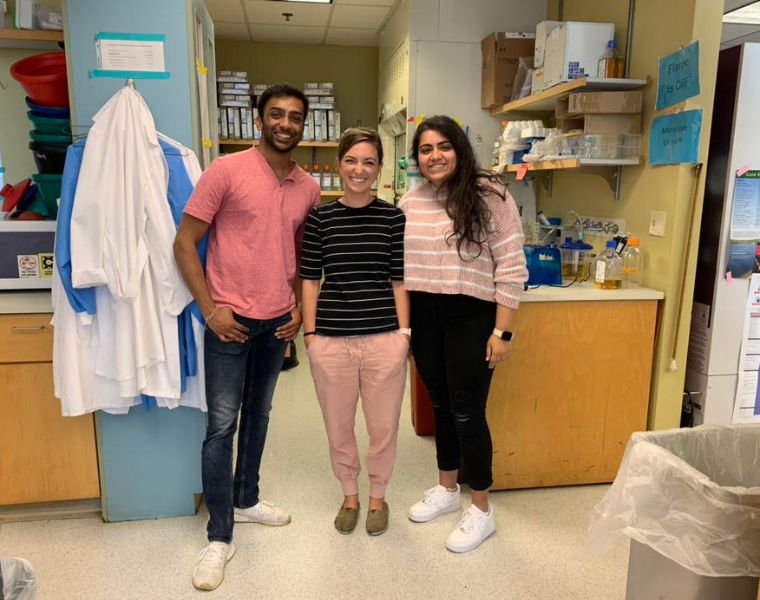To recognize the contributions postdoctoral researchers make to Case Western Reserve University—and their respective fields—The Daily has partnered with the Office of Postdoctoral Affairs on a new monthly series. Know an outstanding postdoc making an impact at CWRU or in their field? Nominate them to be featured in this series.
Inside your gut, there is a nervous system so complex and autonomous it is often called the “second brain.” Within it, a diversity of neurons and glia interact with various cell types and position themselves to play different roles.
Marissa Scavuzzo, a postdoctoral fellow in the Department of Genetics and Genome Sciences at Case Western Reserve University, seeks to uncover a deeper mechanistic understanding of the diversity of these glial cells in health and disease. She hopes to understand more about their functional heterogeneity and functional evolution, knowledge that will help scientists know how to support those who experience gut disturbances.
Scavuzzo arrived at CWRU in Oct. 2018 to work with Paul Tesar, the Dr. Donald and Ruth Weber Goodman Professor of Innovative Therapeutics. In the years since, she has been awarded the Howard Hughes Medical Institute’s Hanna H. Gray Fellowship, the New York Stem Cell Foundation Druckenmiller Fellowship and the Hartwell Foundation Fellowship.
Scavuzzo recently won the coveted 2023 Eppendorf & Science Prize for Neurobiology, which acknowledges the increasingly active and important role of neurobiology in advancing our understanding of the functioning of the brain and the nervous system.
When asked what advice she has for other postdocs looking to make the most of their postdoc careers, Scavuzzo’s advice is simple.
“Don’t isolate yourself; talk to people in your environment because everyone is here to help each other,” she said. “Seek out experiences that enrich you for what your goals are. There is so much opportunity, but you have to make room for what is important for you personally. And you always have time for this, you are never too busy to make time for what is most important for your own personal goals.”
Her goal is to lead her own research group to unravel the mysteries of glial cells inside the gut.
But Scavuzzo’s work isn’t limited to the lab. She is chair, scientific director and co-founder of Rise Up: Northeast Ohio, a science education nonprofit aiming to bring diversity to science careers.
Founded with Tesar and Scavuzzo’s husband, Andrew, Rise Up: Northeast Ohio introduces Cleveland Metropolitan School District ninth and tenth grade students to volunteer scientists at varying career stages at institutions across Cleveland. The program is centered on the “Life as a Scientist” program, through which students spend a year completing the same activities scientists do: daydream, write grants, compete for funding, conduct experiments, and present and publish (through peer review) in a journal assembled by Rise Up. These efforts help youth view science as a discipline that encourages creativity, artistry, curiosity and communication.
Those who would like to work with the organization can email Andrew at andrewscavuzzo@riseupnortheastohio.org.

